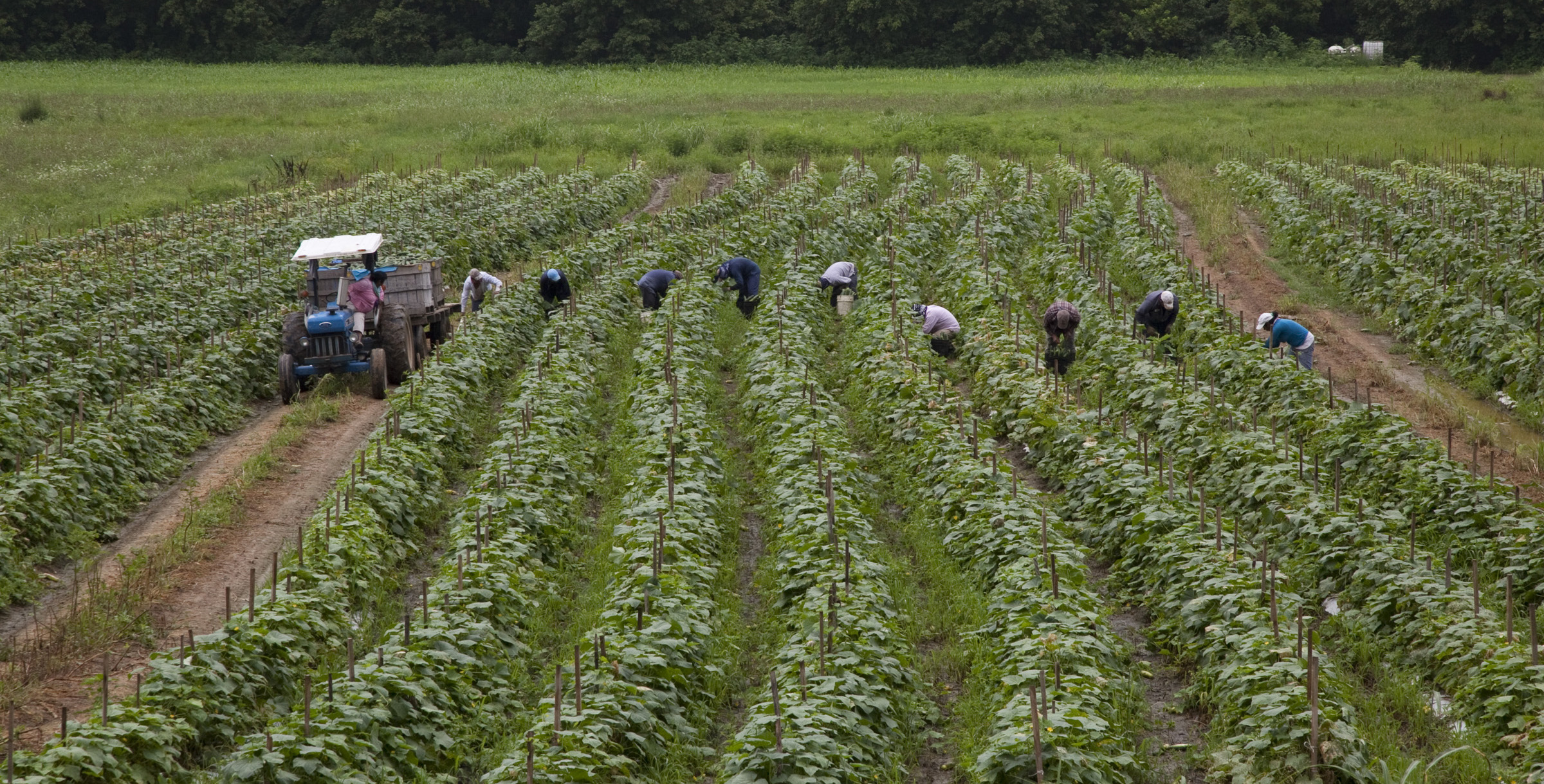This past weekend we gathered around the dinner table with family and friends to give thanks. Often we acknowledge the delicious bounty that’s before us. If grown in Canada, this bounty is often tended to and harvested by people like Gabriel from St. Lucia in the Caribbean who works on a produce farm near Guelph.
Unlike us, Gabriel cannot celebrate with his family this Thanksgiving.
Gabriel works under Canada’s Seasonal Agricultural Workers Program, a subsection of the Temporary Foreign Worker Program (TFWP), which in his case makes bringing his children to Canada impossible. Gabriel signed up for the TFWP after Hurricane Thomas devastated his country’s economy in 2010. He has not seen his family in two-and-a-half years.
For many migrant workers these extended periods of separation have led to marital breakdowns and estrangement from their children. Their lives are often lonely and heartbreaking.
Under the TFWP, Canadian employers hire migrant workers for jobs that Canadians and permanent residents do not want. These men and women work up to 16 hours in fields, in food processing plants or in homes as caregivers. Depending on which program they work under, they are tied to one employer and subject to a variety of arbitrary rules.
Making matters worse, the workers’ rights are regularly ignored. Those who are abused or exploited remain silent, afraid of losing their jobs and the income that is vital for their families. When Gabriel first arrived in Canada he and 62 workers were crammed into an eight-room house. Even though he worked 60 hours a week and was not compensated for overtime, he dared not complain for fear of being fired and deported.
Gabriel’s reality contradicts Canadian values which emphasize strong families, family reunification, and the protection and promotion of human rights.
To make workers eligible to apply for permanent residency through the Provincial Nominee Program, some employers are offering full-time employment. But many of the “temporary” migrants work fulltime anyway. Even the so-called Seasonal Agricultural Work Program, which started 50 years ago, is now a year-round job as a result of greenhouses, which is where Gabriel currently works.
Those who can apply for permanent residence, such as caregivers, are caught in a backlog of approximately 30,000 applications. Some of these applicants have been waiting for a decision from Immigration, Refugees and Citizenship Canada since 2008.
This increasing reliance on temporary foreign migrant workers, who have outnumbered permanent economic migrants for almost a decade, must end.
Last year, the Parliamentary Standing Committee on Human Resources, Skills and Social Development and the Status of Persons with Disabilities reviewed the TFWP. Its recommendations include eliminating work permits that tie migrant workers to a single employer, and further review to consider pathways to permanent residence for migrant workers and the protection of migrant workers’ rights.
While these recommendations are important, much more needs to be done. We urge the Canadian government to end the reliance on temporary foreign labour programs and to return to permanent immigration as a strategy for nation building and meeting labour market demands.
All foreign workers should be eligible to apply for permanent residence prior to or upon arrival to Canada, and to bring their families with them.
The Government of Canada should also immediately address the backlog of permanent residence applications in a just and timely way. Its ability to process and settle 25,000 Syrian refugees in a matter of months shows that the capacity exists to process the 30,000 outstanding applications.
Reliable, hardworking people like Gabriel contribute in so many ways to Canada. We should give thanks for them, but they deserve so much more than that.
Connie Sorio is the migrant justice partnerships coordinator at KAIROS Canada, and Tess Agustin is chairperson of Migrante Canada. The KAIROS Toronto office is on the historical territory of the Huron-Wendat, Petun, Seneca and, most recently, the Mississaugas of the New Credit Indigenous peoples. This territory is covered by the Dish With One Spoon Wampum Belt Covenant, an agreement between the Haudenosaunee and the Ojibwe and allied nations to peacably share and care for the lands and resources around the Great Lakes.
This op-ed originally appeared in The Hill Times, October 9, 2017.




